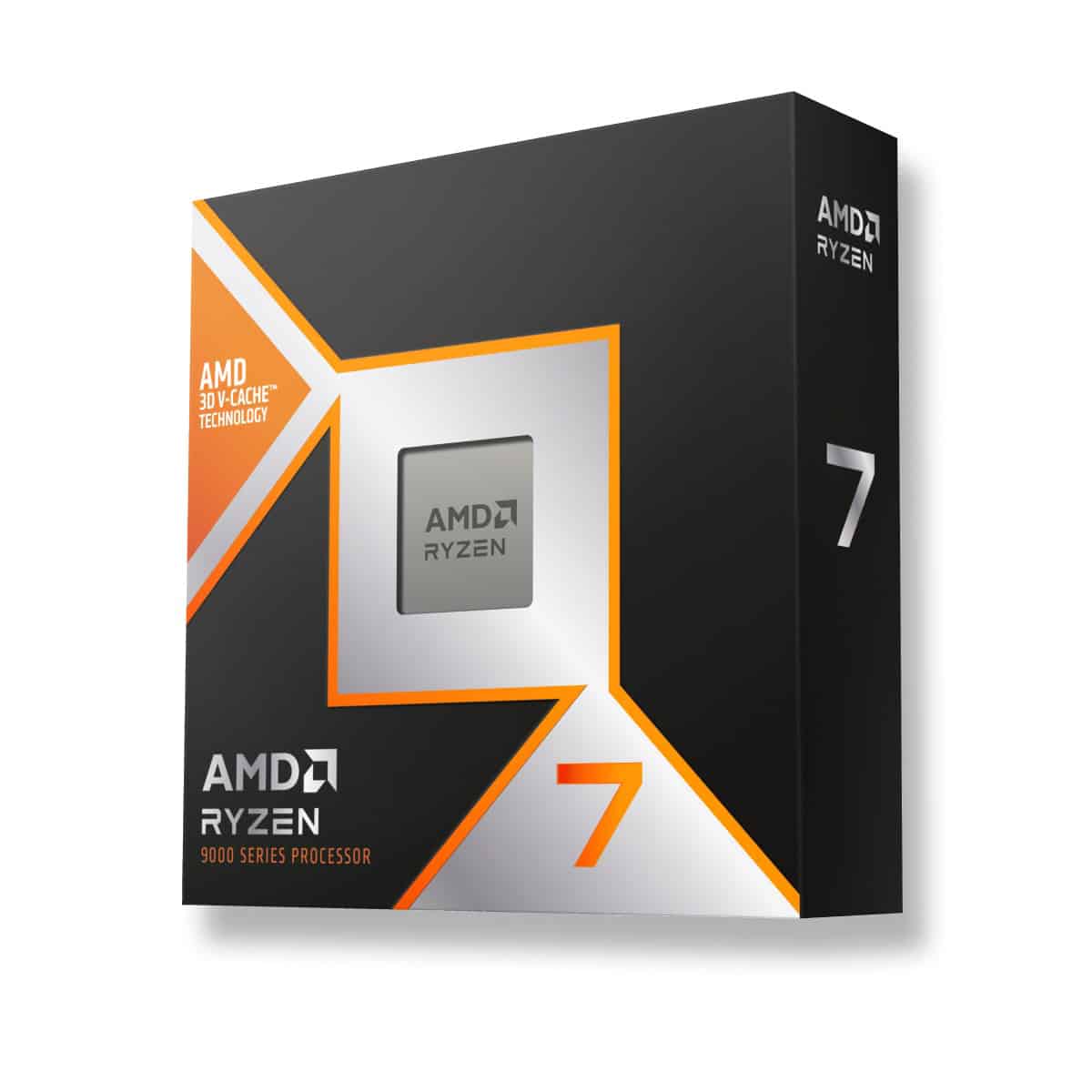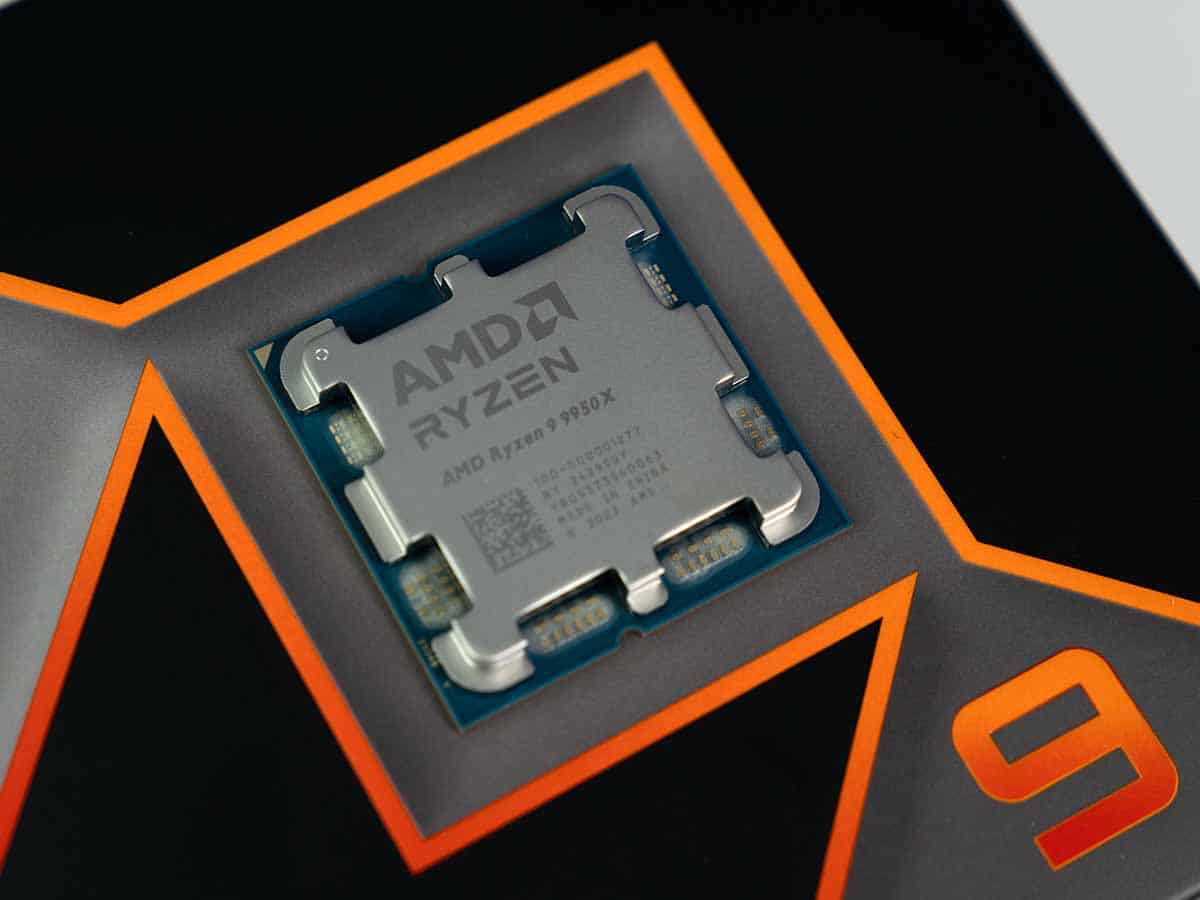Ryzen 7 9800X3D vs Ryzen 9 9950X – how do they compare?
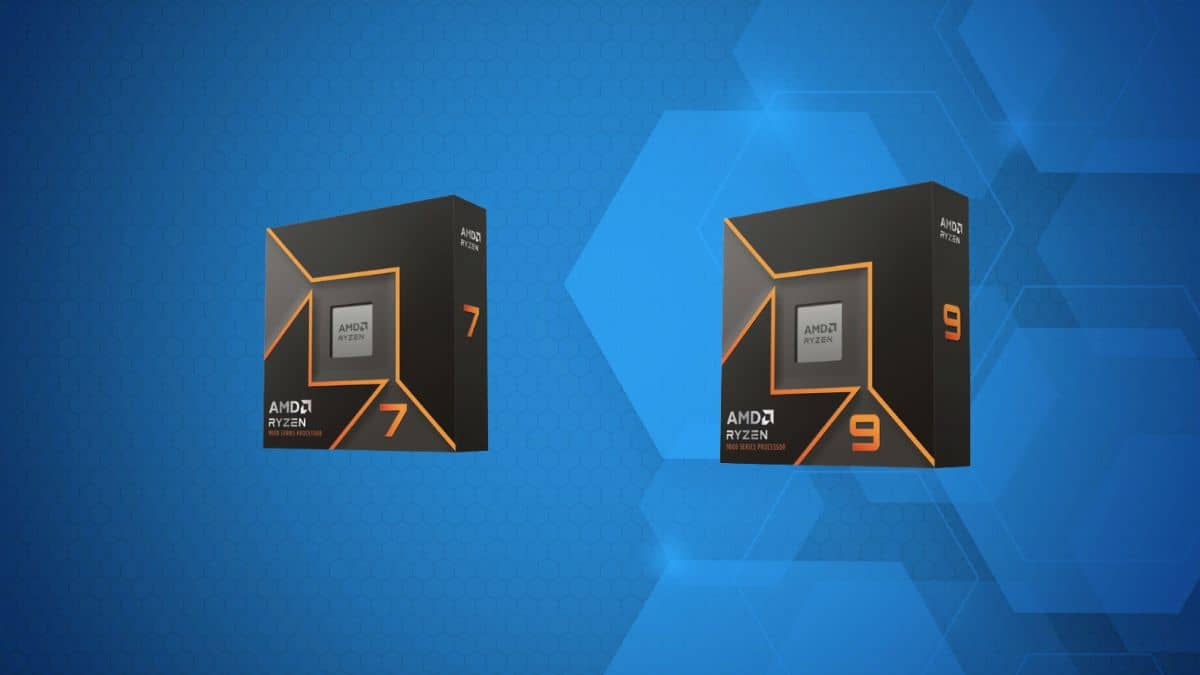
Table of Contents
Even since the Ryzen 9000 series processors launched, the community has only one question: When will the 9000X3D processors drop? That said, the first X3D processor, Ryzen 7 9800X3D, has now launched, and its reviews only solidify what we've all known: It will have out-of-this-world gaming performance and succeed the Ryzen 7 7800X3D as the best gaming CPU.
However, one question remains: How does it fare against the flagship processor, the Ryzen 9 9950X? We know that the X3D processors have better gaming but lower productivity performance, so that won't be surprising, but the 9950X is no slouch either.
So, if you were waiting for the 9800X3D to launch and wanted to know which processor you should choose, we'll compare these CPUs to paint a clear picture. However, remember that both processors have pros and cons, meaning it all depends on what you want from your rig. We'll break down the key differences so you can make an informed decision.
AMD Ryzen 7 9800X3D
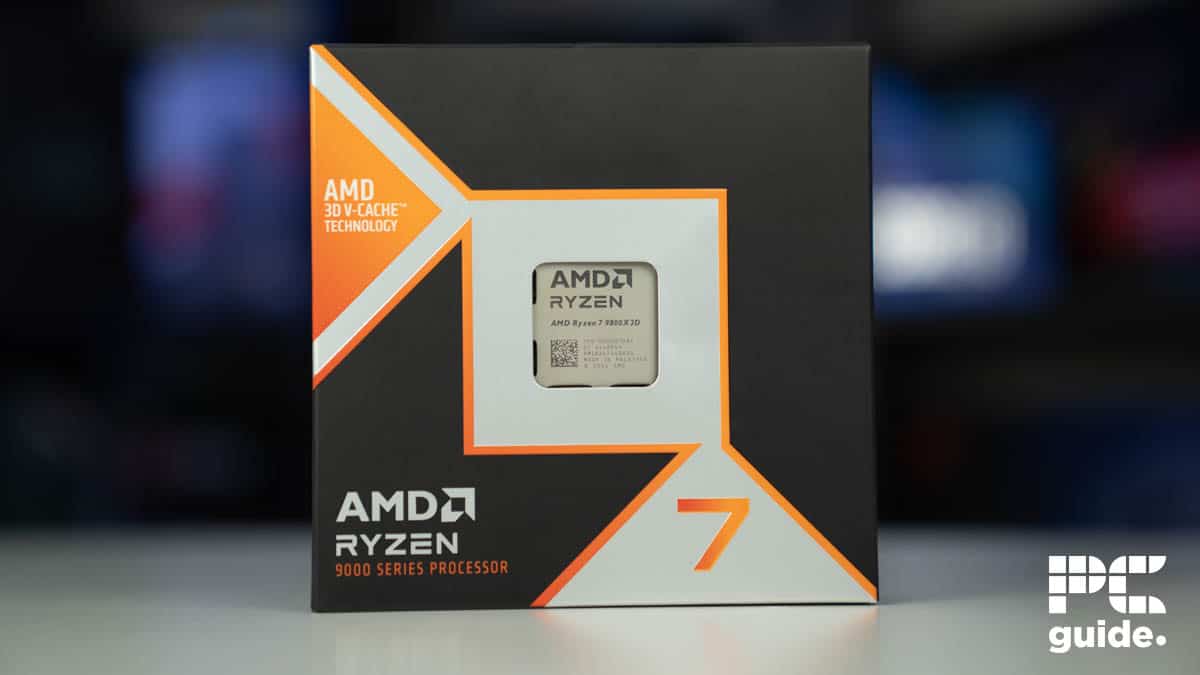
Cores
8
Threads
16
Boost clock speed
5.2GHz
Base clock speed
4.7GHz
L3 cache
96MB
TDP
120W
Platform
AM5
Shop on Amazon
CHECK PRICEAMD Ryzen 9 9950X
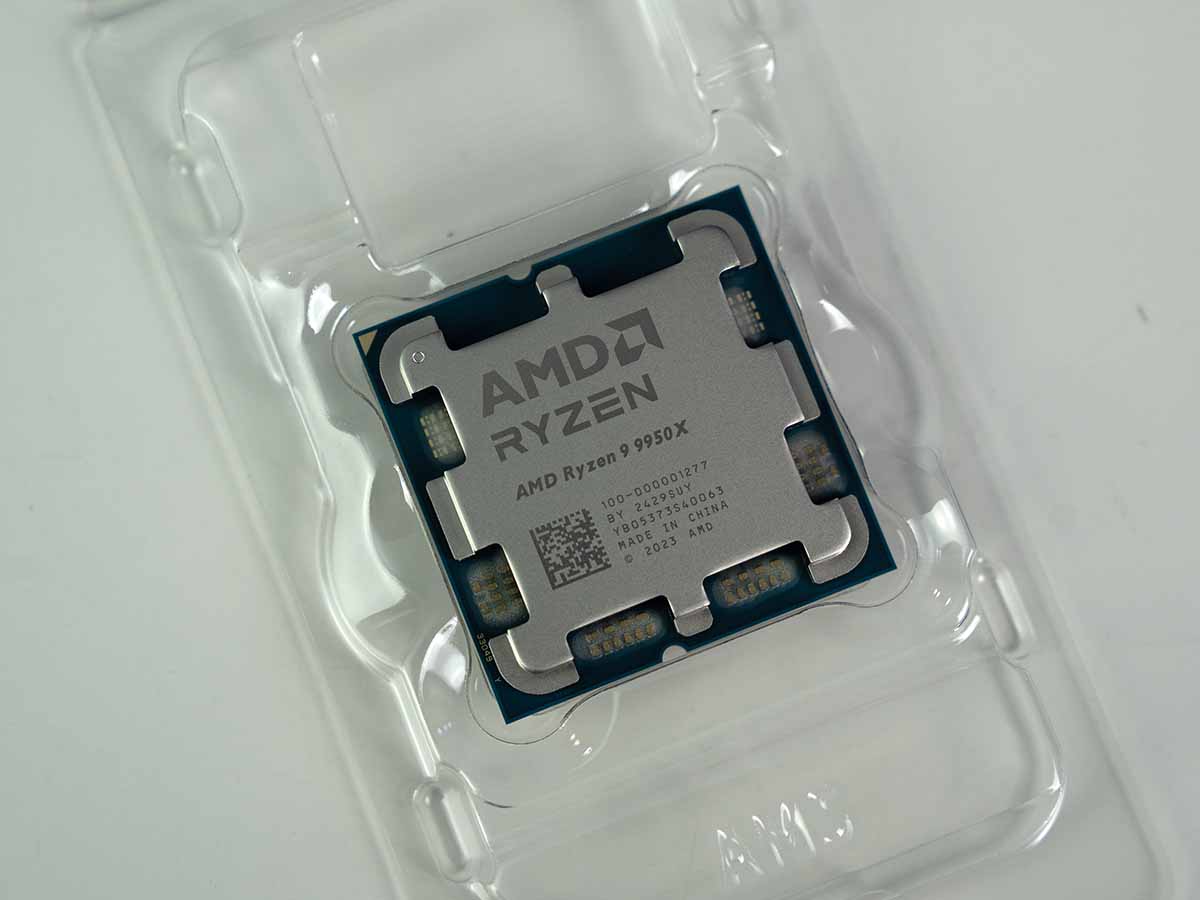
Cores
16
Threads
32
Boost clock speed
5.7 GHz
Base clock speed
4.3 GHz
L3 Cache
64 MB
TDP
170 W
Platform
AMD Socket AM5
Shop on Amazon
CHECK PRICESpec comparison
To see the hardware difference between the two processors, we've listed their specifications below.
| CPU | Ryzen 7 9800X3D | Ryzen 9 9950X |
| Architecture | Zen 5 | Zen 5 |
| Socket | AM5 | AM5 |
| Process | TSMC 4nm FinFET | TSMC 4nm FinFET |
| Cores | 8 | 16 |
| Threads | 16 | 32 |
| Base clock speed | 4.7 GHz | 4.3 GHz |
| Boost clock speed | 5.2 GHz | 5.7 GHz |
| L3 cache | 96 MB | 64 MB |
| TDP | 120W | 170W |
| Integrated graphics | AMD Radeon Graphics | AMD Radeon Graphics |
Coming from the same family, you can see that there aren't a lot of differences other than those that are normal between a Ryzen 7 and a Ryzen 9 processor. These processors share the same socket, architecture, CPU process technology, and integrated graphics. Where they differ are the clock speeds, core and thread count, L3 cache, and TDP. We'll compare these aspects to see the actual difference on a hardware level.
Cores and threads
The Ryzen 9 9950X has double the cores and threads of the Ryzen 7 9800X3D, meaning it can handle resource-intensive tasks and applications better. However, that doesn't mean the 9800X3D isn't capable of that, as they share the same process technology and architecture; it can also handle multi-threaded workflows, but its main selling point is the large L3 cache utilized in gaming.
So, if your focus is primarily on productivity tasks and some gaming, the Ryzen 9 9950X is the best option. However, if you're building a rig just for gaming, the Ryzen 7 9800X3D is the best gaming processor you can buy.
Clock speeds
The clock speed of these processors is another aspect that is different. The Ryzen 7 9800X3D has a base clock speed of 4.7 GHz, while the 9950X has a 0.4 GHz slower base clock speed of 4.3 GHz.
On the other hand, the Ryzen 9 9950X has a much faster boost clock speed of 5.7 GHz, while the 9800X3D maxes out at 5.2 GHz. However, since the 9800X3D can be overclocked, these frequencies can be increased and possibly even match that of the 9950X.
However, clock speed isn't everything, as the 9950X has more cores and threads. At its full potential, every core can run significantly faster, which means better multi- and single-core performance. That said, tasks that can make use of a large cache, mainly games, will see better performance with the 9800X3D, so we've come full circle.
L3 cache
The Ryzen 7 9800X3D has a 96 MB L3 cache, while the 9950X has a 64 MB L3 cache. This is a difference of 32MB, which puts the odds in 9800X3D's favor when it comes to gaming, as games can benefit from a large cache.
That said, a 64MB is also pretty good, but the 9950X doesn't have a cache mounted directly beneath the CCD, meaning slightly slower access times.
TDP
Since the 9950X has more cores than the 9800X3D, it isn't surprising that it requires more power to operate. The 9950X has a 170W TDP, while the 9800X3D has a power draw of 120W. This is a 50W difference, which makes the 9800X3D more energy efficient. Also, since the extra cache is placed beneath the CCD in the 9800X3D instead of on top of it, it is said to offer better thermal performance than its predecessors. So, if you want the best performance out of these processors, we recommend keeping them cool by using the best CPU cooler for Ryzen 9 9950X and Ryzen 7 9800X3D.
Ryzen 7 9800X3D and Ryzen 9 9950X price difference
The Ryzen 9 9950X, according to Camelcamelcamel, costs $599, the lowest it has ever been at the time of writing, while the Ryzen 7 9800X3D has an MSRP of $479. So, if you're okay with slightly lower productivity performance and excellent gaming output, it’s a no-brainer that the 9800X3D is the option to go for, as it also provides excellent value, given the generational uplift it brings.
On the other hand, if you want a more well-rounded option for work and gaming, the 9950X is one of the best processors you can get. That said, both of these processors are based on the AM5 platform, which is supported until 2027. Seeing how AMD is supporting the AM4 platform, it could go on even beyond 2027.
So, you'll have plenty of options to upgrade to, but seeing the performance of these processors, you shouldn't feel the need to upgrade any time soon.
Which processor should you get?
The answer to this question ultimately depends on your budget and usage. Neither of these processors is a pocket-friendly option, but they both serve different purposes. The 9800X3D is the best gaming processor, taking over the 7800X3D, while the 9950X is the flagship CPU, dishing out incredible multi-threaded performance as well as gaming performance.
In our Ryzen 9 9950X review, it scored 319 FPS in Cyberpunk 2077 at 1080p low resolution. So, it isn't a slouch in gaming, but it is much better suited for productivity tasks. That said, regardless of the processor you get, you'll have to invest in the AM5 platform, which means buying DDR5 RAM, as these processors aren't compatible with DDR4 RAM, but both of them are top-notch CPUs and should serve you well.
